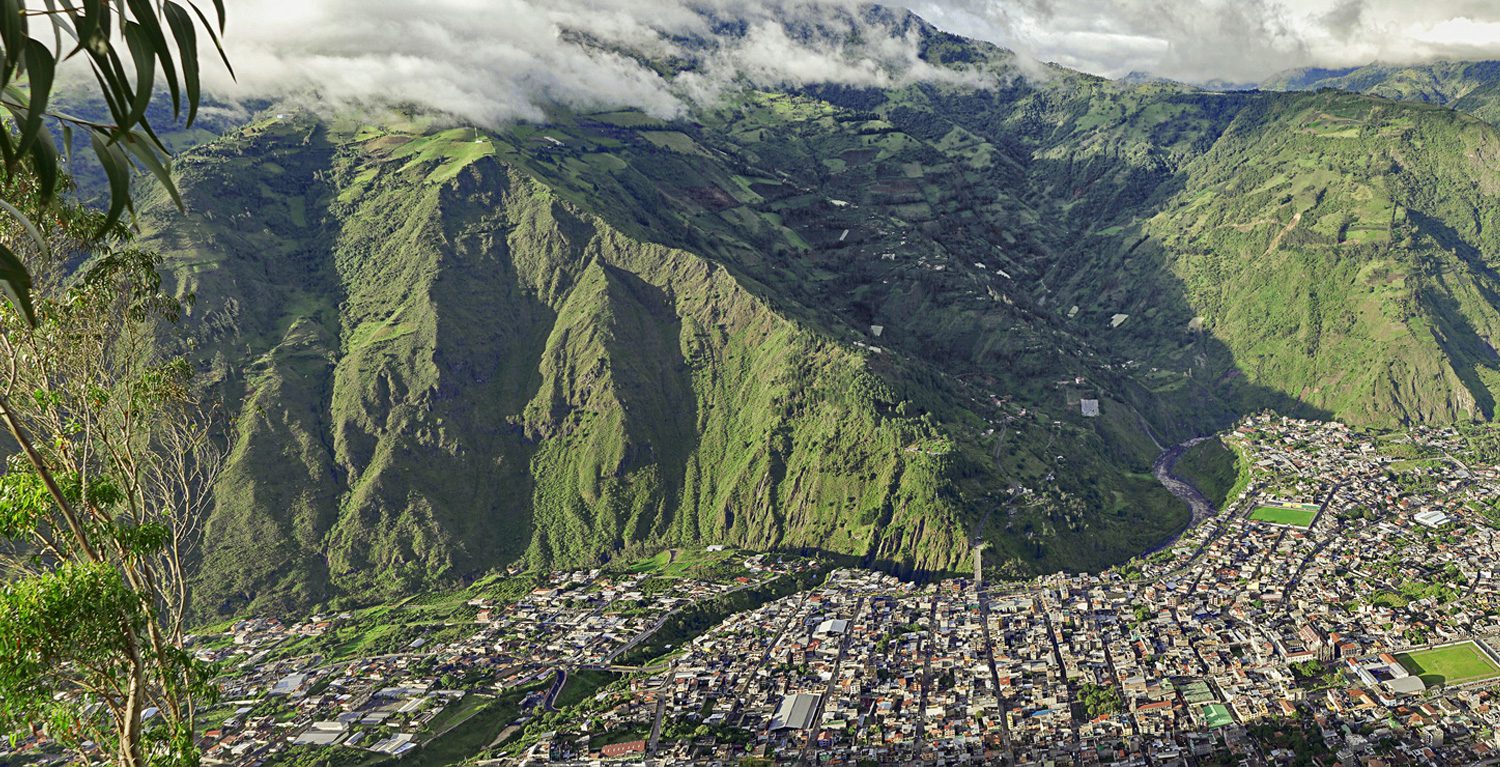In this series, we discuss some of the complexities to consider when expanding your business across borders, or if you’re looking at multinational investment. There are many general issues, and different countries have very different legislation, regulation, and tax regimes.
Here, we review some of the complexities to keep in mind when expanding or investing into Ecuador.
Introduction
Ecuador’s geographic location on the north-eastern edge of the South American Pacific coast gives it access to well-established regional trade routes reaching north and south. The country boasts a modern infrastructure supporting domestic routes, a vast sea line (over 2,500 vessels leave from Ecuadorian ports each year), and has a dynamic and skilled workforce in its 17million population. Ecuador adopted the U.S. dollar as official currency in 2000.
Ecuador’s economy is the eighth largest in Latin America, with a gross domestic product (GDP) of $107.44 million (USD) in 2019. It’s growth rate has been around 5% since 2000, and Ecuador Times reports a year-on-year growth of 8.4% in Q2 2021. While services are key to the economy, the country also has abundant petroleum reserves, with oil drilling accounting for 40% of Ecuador’s export income and 25% of public budget revenues in recent years. (The country experienced significant economic growth between 2007 and 2014 thanks to an increase in oil prices.)
The government has taken numerous measures to strengthen the private sector and promote economic growth, bolstered by a $10.2 billion funding agreement signed with the International Monetary Fund (IMF) in 2018, intended to correct fiscal imbalances and improve the efficiency of public finances. Within this package of reforms, several benefits emerged for foreign companies that set up a business in Ecuador, including simplifying and digitising the incorporation process, and reduction of procedures and tax requirements to form a company.
There are challenges however, as evidenced by Ecuador’s place as 129/190 on the World Bank’s Ease of Doing Business Report. Recruiting staff in Ecuador can be difficult, as outsourced recruitment companies are prohibited. The country’s tax, legal and regulatory regimes are complex and face frequent changes as the government updates and revises Ecuador’s frameworks. Though these may present difficulties, Ecuador offers many advantages to entrepreneurs and multinationals looking to begin commercial operations on its shores.
Opportunities
The sectors with strong future potential include telecommunications, electric power generation, water resources equipment, construction, and safety and security equipment – particularly including the supply of equipment and services to Ecuador’s increasing number of domestic manufacturers and its underdeveloped telecommunications and utility industries.
Wheat, cotton, rice, corn, soybean meal, and processed foods are the leading export prospects for the agricultural sector, along with seafood.
There are also opportunities in developing and emerging industries such as online commerce and fintech, and other technological innovation that is sweeping through the region.
Ecuador is currently a net importer of electricity thorough grid connections with Colombia and Peru. Hydroelectricity accounted for 79% of Ecuador’s electricity generation in 2020; the other primary source being oil–powered conventional thermal power plants. Ecuador’s high use of hydropower leaves the sector vulnerable to droughts and low water levels during the dry season (October to March), and it relies on oil–fired plants to offset this. The government is considering converting its old oil–fired plants into natural gas–fired facilities, not only to meet power demand, but to also reduce costs and emissions, though Ecuador’s lack of domestic natural gas supplies prevents expansion in the sector in the near term.
The non–hydro renewable energy sector in Ecuador is relatively small, contributing around 3% to total electricity generation in 2020. Government policy intended to increase wind and solar market penetration may result in increased non–hydro renewables generation.

Foreign Direct Investment
Ecuador is open to foreign investment in many sectors. The industries that attract the most inward investment are mining and quarries, manufacturing, agriculture, and transportation and storage.
The U.S. is Ecuador’s top trading partner, followed by China, Panama, Chile, Peru, Canada, Spain and the UK.
Ecuador allows 100 percent foreign equity ownership without the need for authorisation or prior screening. There are also no limits on royalties that may be remitted from license and franchise transactions.
Ecuador also has seven free trade zones, offering exporters the possibility to import all the necessary equipment to build operations within the zones free of customs duties, statistics rate and VAT. Furthermore, exporters manufacturing within the zones enjoy the benefit of buying supplies and raw materials from third countries, without having to pay duties or taxes that lead to increased prices. Goods may remain in the zone for a maximum period of 180 days, which can be prorogues only for more 1 time for 180 days. Free zones are located in Quito, Guayaquil, Cuenca, Manabí, Esmeraldas, El Oro and Manta.
Doing business & establishing a company
Ecuadorian Company Law (La Ley de Compañías del Ecuador) recognises 5 different entity types that can be established in the country, each serving a distinct purpose and satisfying different objectives. The most common are the SA and LLC, details of which are below.
Be aware that all legal entities must appoint a resident as legal representative in Ecuador, who will represent the company in labour and civil matters.
| Type | Partners | Capital | Administration |
| Sociedad anónima or S.A. (Unlimited liability company) | Minimum 2, no maximum | Minimum US$800, divided into ordinary or preference shares, with minimum share quantity defined by the Board. | The General Assembly of Shareholders is the main body of the company.
Must have a General Manager and a President who will have the role of legal, judicial and extrajudicial representation, this can either be a shared or sole responsibility. |
| Compañía de responsabilidad limitada or Cía. Ltda (Limited liability company) | Minimum 2, maximum 15 | Minimum US$400, with at least 50% paid on incorporation, the remainder due within 12 months. | Must have a General Manager and a President who will have the role of legal, judicial and extrajudicial representation, this can either be a shared or sole responsibility. Decision making requires unanimous agreement by all the members of the Board |
| Sociedades por Acciones Simplificadas (SAS) – Simplified Stock Company | Only 1, General Manager and President | No minimum or maximum | Must have a General Manager and President at the same time. |
It is also possible to form a Branch of a Foreign Corporation.
Businesses should select a law firm early on to have legal support available in areas like taxes, political/economic changes, contracts, sanitary registrations, and law reforms. You may also look at appointing a local agent or distributor to service the Ecuadorian market.
Incorporation can be costly and will take almost 50 days, with many required procedures involving legal advice and inspections from local municipal offices – though an SAS incorporation is digital, agile, low cost and can be live in two weeks. It is strongly advisable that you take the time to visit Ecuador frequently and develop long-term relationships with local Ecuadorian business partners.
Tax & Accounting / Regulatory
The Ecuadorian tax regime requires monthly and annual tax declarations. There are only eight tax payments due each year, but processing can take around 650 hours per annum (according the World Bank’s Ease of Doing Business report). Employer paid social security contributions alone can take over 300 hours, VAT payments around 240, and corporation tax will take over 100 hours to work through.
All companies domiciled in Ecuador that obtain taxable income, including local Branches of Foreign Companies, will be subject to an income tax rate of 25%, though there are provisions for preferential tax rates based on reinvestment of profits. However, the tax rate increases to 28% based on the proportion of taxable income corresponding to the direct or indirect involvement of partners, shareholders, beneficiaries or the like, which are resident in tax havens or lower tax regimes.
VAT is set at 12% (one of the lowest in the region), and 25% withholding tax applies to non-tax residents.
All companies that exceed $500,000 in total assets must conduct and audit. Branches of Foreign Corporations must audit if total assets exceed $100,000.
Ecuador recognises and obliges reporting be done using IFRS.
Labour / Payroll matters
In 2008, the Constituent Mandate 8 ruled that outsourced recruitment and hiring companies, such as Professional Employer Organizations (PEOs), are not permitted to operate in Ecuador. However, businesses do have the option of contracting civil services to hire specialised technical expertise and hire for support services (cleaning, security, communications, etc.), under a service provision regime.
But, this can only be done if:
- The contracted service does not constitute habitual activity or the essence of the business.
- The person providing the service has an independent physical, economic and administrative infrastructure, i.e. they’re operating their own business.
- The service is provided in the contractor’s own facilities.
In Ecuador, the principle of legal interpretation is in favour of the employee. Therefore, even if someone is hired under a service provision regime, if elements of an employment relationship exist, there’s a risk that your business may encounter legal challenges by the state or your employee. In recent years, the government has used a heavy hand in enforcing employee rights.
Ecuador’s working week is 40 hours over the five weekdays, with overtime rates applicable beyond 40 hours. Overtime rates are based on after-hours schedules and range from 25-100%.
Employers are required to pay their employees an additional month’s salary in December (known as the 13th month), and the 14th salary is a bonus equal to the current legal minimum wage, payable in either March or August (depending on the location of the workplace). Minimum wage for unskilled workers is set annually, and is currently $400 per month.
Both employees and employers contribute to Social Security each month. The employee’s contribution is 9.45% of gross salary and employer’s is 12.15%. However, after an employee’s second year of employment, employers must give additional reserved funds to Social Security at 8.33%.
Annual leave (including rest days) is 15 days after one year of employment. After five years of employment, employees are entitled to one extra day per year, up to an additional 15 days. Ecuador observes 12 national holidays. Employees are entitled to sick leave of 50% of their salary for up to two months, and employers must offer up to 12 weeks’ paid maternity leave (25% paid by the employer and 75% by social security).
 Banking
Banking
Having a bank account is one of the requirements for incorporation, and it’s relatively easy to open a corporate account in Ecuador. There may be limitations on the account, though, until operations are fully functional and business transactions are regularly made. Opening an account can take up to 5 working days.
Each bank has different requirements for minimum capital and formal documentation, but you can expect to be asked for company deeds and byelaws, a copy of the appointment letter for the legal representative and their ID, list of company shareholders, and certification that all the company’s obligations are met, granted by the Superintendencia de Compañías (Superintendent of Companies), as a minimum. There may be additional KYC requirements based on the company’s intended activities.
Conclusion
A dynamic and vibrant nation, Ecuador provides a plethora of opportunities for investment, alongside cultural differences and legislative challenges to be met.
It is strongly recommended to build relationships and align with a local business partner. As the government’s regulatory changes bring frequent issues for foreign investment, it’s best to have a local partner to keep you compliant.
Ecuador should always be on the shortlist for investment.
Local Knowledge – International Coverage
Founded in 1979, Auxadi is a family-owned business working for multinational corporations, private equity funds and real estate funds. It’s the leading firm in international accounting, tax compliance and payroll services management connecting Europe and the Americas with the rest of the world, offering services in 50 countries. Its client list includes many of the top 100 PERE companies. Headquartered in Madrid, with offices in US and further 22 international subsidiaries, Auxadi serves 1,500+ SPVs across 50 jurisdictions.
All information contained in this publication is up to date on 2021. This content has been prepared for general guidance on matters of interest only, and does not constitute professional advice. You should not act upon the information contained in this chart without obtaining specific professional advice. No representation or warranty (express or implied) is given as to the accuracy or completeness of the information contained in this content, and, to the extent permitted by law, AUXADI does not accept or assume any liability, responsibility or duty of care for any consequences of you or anyone else acting, or refraining to act, in reliance on the information contained in this chart or for any decision based on it.




